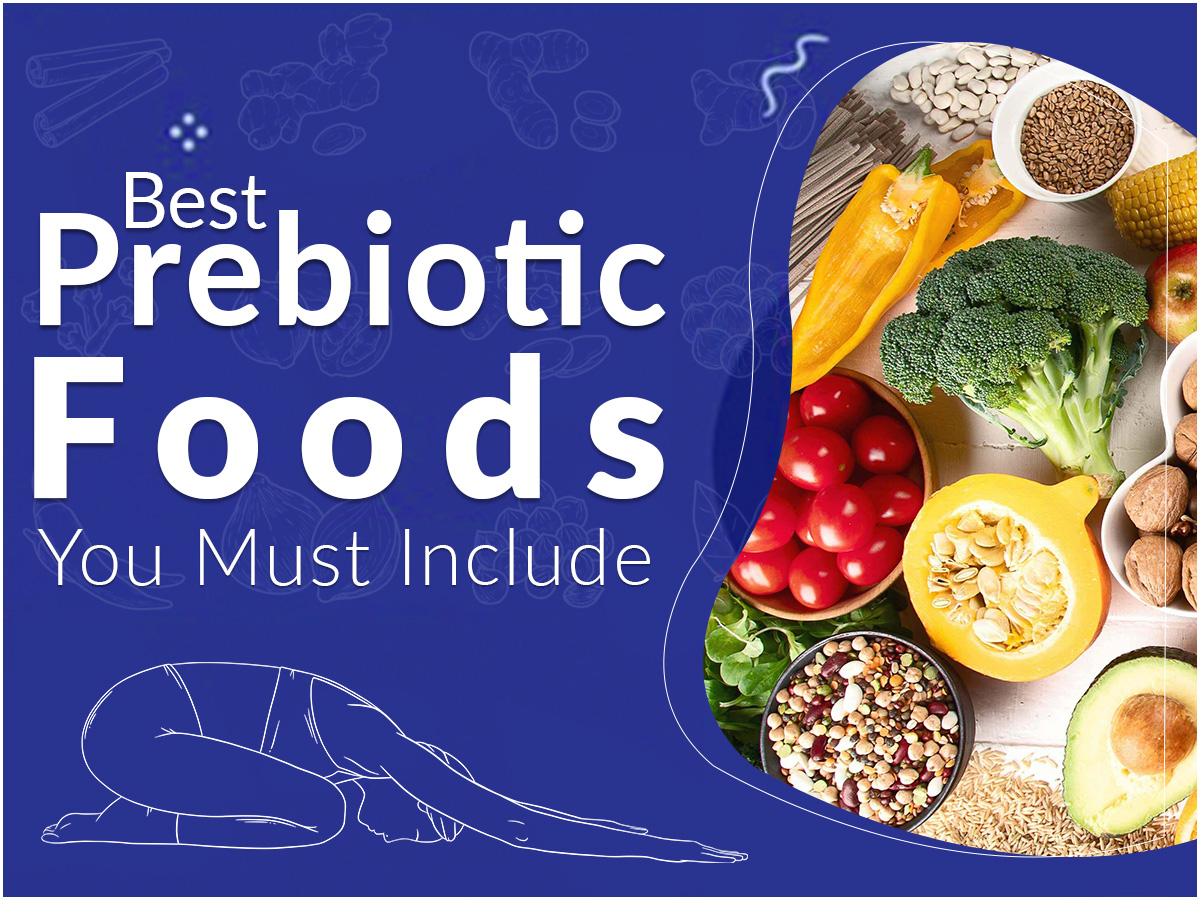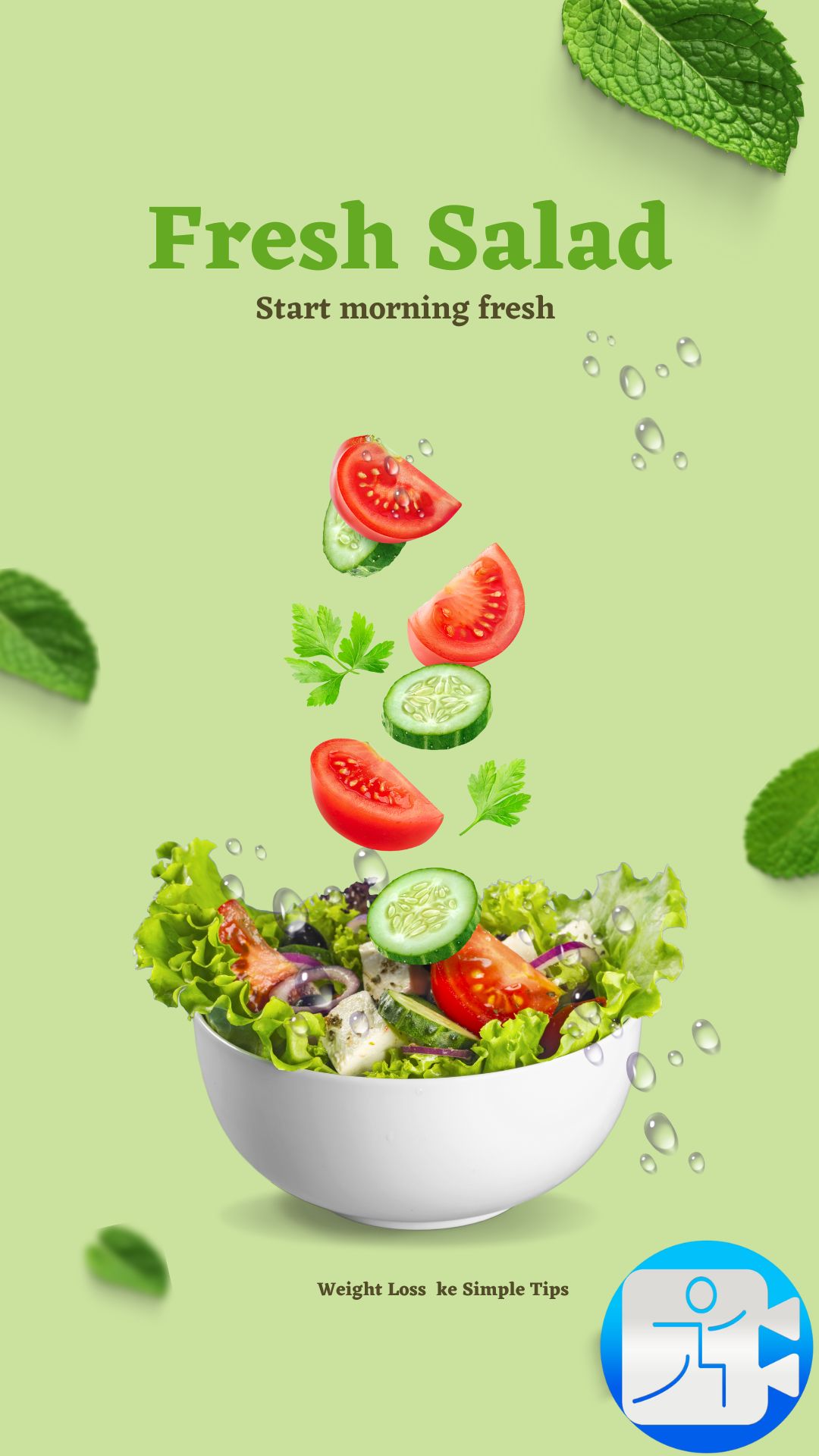
There are over 100 trillion microbes in our gut to regulate digestion, metabolism, and nutrition to immunity. If there are more unhealthy microbes compared to healthy ones in our intestines, they might lead to weight gain, high blood sugar, high cholesterol, and other disorders. It restores the imbalance by ensuring your body has gut-friendly bacteria. Prebiotics are special plant fibers that promote the growth of such bacteria making the digestive system better.
Prebiotics are a source of nutrition for your gut and healthy bacteria. They are indigestible by the body and go to your lower digestive area, helping the good bacteria to grow and make your intestines healthy. Examples are apples, berries, barley, banana, garlic, green vegetables, legumes, onions, and tomatoes.
Nutritionist Lovneet Batra mentioned that this is a form of dietary fiber that feed the friendly bacteria in your gut. These healthy fibers include inulin, fructooligosaccharides, galactooligosaccharides, beta-glucans, pectins, and resistant starches.
Here are the best prebiotic foods suggested by Batra that you can add to your diet:
Garlic
Garlic acts as a prebiotic by promoting the growth of beneficial Bifidobacteria in the gut. It also helps prevent disease-promoting bacteria from growing.
Onion
Onions are rich in inulin and FOS. FOS strengthens gut flora, helps with fat breakdown, and boosts your immune system by increasing Nitric oxide production in cells.
Flaxseeds
The fiber content of flaxseeds is from mucilage gum, cellulose, and lignin. It helps healthy gut bacteria and reduces the amount of dietary to digest and absorb.
Banana
Bananas are low-fructose fruit with fiber-rich and contain inulin, a substance to stimulate the growth of good bacteria in the gut.
Barley
Barley is a popular cereal, high in Beta-glucan, a prebiotic fiber to promote the growth of friendly bacteria in your digestive tract. The beta-glucan in barley has shown lower total and LDL (bad) cholesterol and reduces the risk of cardiovascular disease.
The Best Prebiotic Foods You Must Include
In recent years, the importance of gut health has become increasingly evident, with research highlighting the pivotal role that the gut microbiome plays in our overall well-being. Prebiotics, often overshadowed by their probiotic counterparts, are essential components of a healthy diet that promote the growth of beneficial bacteria in the gut.
Incorporating prebiotic-rich foods into your meals can significantly contribute to maintaining a balanced and thriving gut microbiota. Here, we delve into some of the best prebiotic foods that you should consider adding to your diet.
- Chicory Root: Chicory root tops the list as one of the richest sources of prebiotic fiber, particularly in the form of inulin. Adding chicory root to your diet can support the growth of beneficial bacteria like Bifidobacteria, which are known for their role in promoting gut health.
- Garlic: Besides its flavorful addition to various dishes, garlic is packed with prebiotic compounds such as fructooligosaccharides (FOS). These compounds serve as fuel for beneficial gut bacteria, aiding in digestion and bolstering immune function.
- Onions: Like garlic, onions are abundant in prebiotic fibers, including FOS. Incorporating onions into your meals not only enhances their taste but also provides valuable nourishment for the beneficial bacteria residing in your gut.
- Asparagus: Asparagus is another excellent source of prebiotic fiber, particularly in the form of inulin. This versatile vegetable not only adds a delightful crunch to salads and stir-fries but also supports the growth of beneficial gut bacteria, contributing to improved digestive health.
- Bananas: Ripe bananas contain resistant starch, a type of prebiotic fiber that passes through the digestive tract undigested, ultimately reaching the colon where it serves as fuel for beneficial gut bacteria. Including bananas in your diet can help promote a healthy gut microbiome.
- Oats: Oats are not only a nutritious breakfast option but also a great source of beta-glucans, a type of prebiotic fiber that supports the growth of beneficial bacteria in the gut. Starting your day with a hearty bowl of oatmeal can provide your gut with the nourishment it needs to thrive.
- Apples: An apple a day not only keeps the doctor away but also supplies your gut with valuable prebiotic fiber in the form of pectin. Consuming apples regularly can help promote the growth of beneficial gut bacteria, contributing to overall gut health.
- Flaxseeds: Flaxseeds are rich in soluble fiber, including mucilage, which acts as a prebiotic by providing nourishment to beneficial gut bacteria. Sprinkling ground flaxseeds onto your yogurt or adding them to smoothies is an easy way to boost your prebiotic intake.
Incorporating these prebiotic-rich foods into your diet can have a profound impact on your gut health, fostering a diverse and resilient gut microbiome. By prioritizing the consumption of these nutrient-packed foods, you can take proactive steps towards enhancing your overall well-being from the inside out. So, next time you’re planning your meals, remember to include these prebiotic powerhouses to nourish your gut and promote optimal health.











